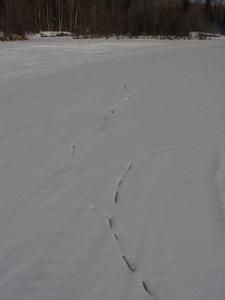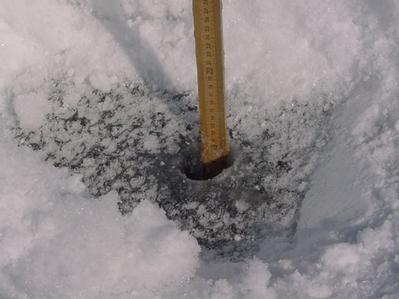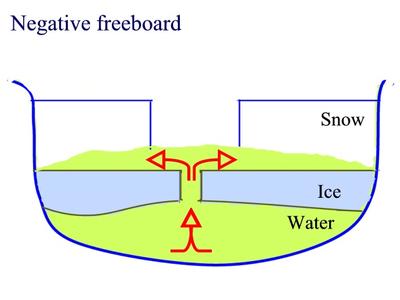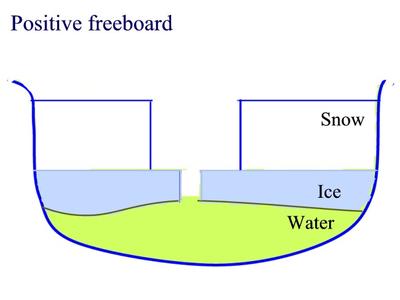11 April, 2002
Today was the monthly measurements of all 11 ponds within and near
the Poker Flat Research Range. We took 1 snow sample, 3 base
temperature and snow depth, 3 ice thickness/freeboard, and 1 surface
temperature measurements. The purpose of collecting this data is to
provide a context for the data collected from the primary and
secondary sites (MST, 31.6, and 33.5 Mile ponds).
Science Behind Freeboard
After drilling for ice thickness measurements, sometimes freeboard is
measured. Freeboard is a measurement between the water level and ice
surface. If the ice surface is above the water level, the freeboard
is positive. A negative freeboard indicates flooding (ice surface
below water). One main reason water floods after drilling is the
weight from snow depth and snow density.
Students' comments from Howard Luke Camp field trip on March 26th:
We learned that snow is an insulator. We also
collected snow samples. Some of the kids ate theirs, but I took mine
home.
I learned that the snow is like a blanket, and we
weighed the snow. My snow was the heaviest. It was 10 grams, and we
checked the temperature of the snow and the air that we breathe. I
had fun.
We put temperature things in the snow. Mine was
-5.8 degrees. We made our own snow samples. I learned that snow was
really warm underground than above it.
All we did was learn about snow. We used these C
degrees meters, put them in snow, waited a few minutes and read how
cold it was. Then we got snow samples and all it did was
melt.
I stuck thermometers in the snow and we saw how the
temperature in the snow changes and why. We got snow samples with
tubes and hamburger flippers.

1. On 29.5-mile pond, ice fracture close to the shoreline. Some are as thick as 5 cm.

2. This pond has a positive freeboard (water below ice surface) of 11 cm, which is pretty deep compared to other ponds.

3. Flooding

4. Low water level
Contact the TEA in the field at
.
If you cannot connect through your browser, copy the
TEA's e-mail address in the "To:" line of
your favorite e-mail package.
|
